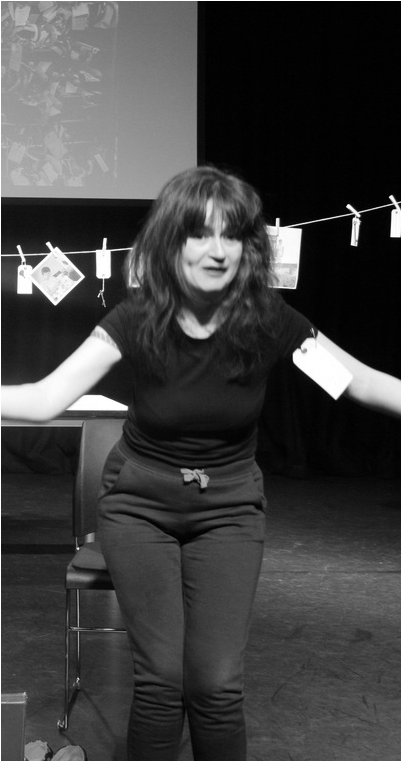Today I've had the pleasure of being in the rehearsal room with actress and writer Pauline Heath. Pauline trained with Graeae theatre company as part of their Missing Piece training and toured in their production of Mother Courage. She has trained with Candoco, Adam Benjamin and Caroline Bowditch, and toured in Edinburgh Theatre Workshop's acclaimed Marat Sade. With so few opportunities for disabled actors out there, Pauline has decided to create her own work. With an award from Grants for the Arts, Arts Council England, we are working together to refresh her skills and generate material for two pieces of work - Never-Never Land is new stand up material and OCCUPATION is to be a new four hander to be developed in the autumn to a rehearsed reading stage. We are also being supported by ARC Stockton.
Pauline and I are both political creatures, so inevitably the work we collaborate on is going to be socially engaged. Understatement! But given what I've written in the first paragraph of this blog, why have we chosen comedy, and how is it possible to create comedy in the face of austerity and its impact on such a large part of the community. I think, given the facts that we trawled through today, and the stories of peoples' experiences, we asked ourselves those questions more than once.
But comedy is incredibly powerful - you get to make the rules, break the rules, create real and imagined worlds, and you get to say it how it is in the most biting way possible, whilst bringing an audience with you. The challenges are about facing where we are....again!....and having the courage to say what needs to be said in as creative a way as possible.
Disability comedy and comedy created by disabled people has become incredibly sophisticated, with some incredibly talented artists out there, and has challenged both our own and other peoples' perceptions of us. So I'll keep you posted with how we get giggles from the cuts, reality tv, media representation of disabled people, social control, fat cats and little rats, immigration and food banks. And why we think it's important to make the work.

 RSS Feed
RSS Feed